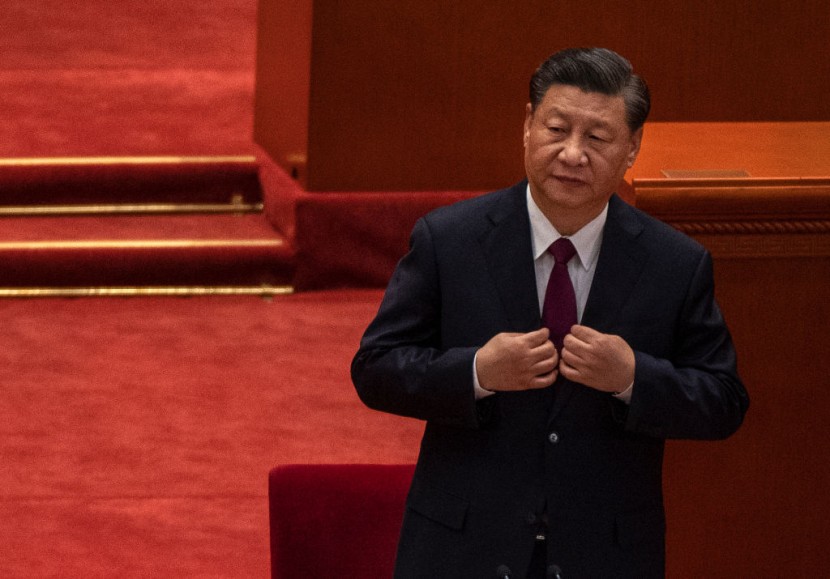
Before the alliance's anticipated criticism of China at its annual summit, which has for the first time this year invited four heads of government from the Asia-Pacific, the top Chinese envoy to the UN raged against NATO on Tuesday.
Ambassador Zhang Jun highlighted worries about the "protracted and prolonged" character of the fight, which has resulted in a "dire" humanitarian disaster with increasing civilian deaths, at a Security Council briefing on the war in Ukraine. The top Chinese ambassador then gave the North Atlantic Alliance one-third of his time.
China Opposes Asia-Pacific Version of NATO Alliance
Zhang claimed that China was "seriously concerned" about the alliance's strategic adjustment, which aims to focus attention on the crucial matter of dealing with China moving forward.
According to Zhang, China opposes the bloc's presence in the area as well as "assembling a 'Asia-Pacific version of NATO' through military alliances. The Asia-Pacific region must not experience the unrest and war occurring in certain regions of the world."
Until Thursday, NATO leaders are meeting in Madrid, where they will likely present the organization's strategies for dealing with Beijing, which it sees as a long-term security threat. The fact that the leaders of Australia, New Zealand, Japan, and South Korea received invitations to this year's meeting for the first time makes it remarkable, Newsweek reported.
Since the start of the war in Ukraine, China has made opposing NATO and rejecting Western sanctions against Russia central tenets of its foreign policy. Beijing agrees with Moscow's assertion that Russia's invasion of its neighbor was motivated by the bloc's eastward expansion rather than the Kremlin's geopolitical goals. Additionally, the West believes that China gave Russia important political cover at the UN and elsewhere.
As four partners from the area - Australia, Japan, New Zealand, and South Korea - join the NATO summit for the first time, Beijing is especially concerned that Washington is constructing an Asian version of NATO.
On Wednesday, there will also be a meeting with the leaders of Japan, the United States, and South Korea. Beijing and Moscow both believe that NATO's eastward expansion is the cause of Moscow's invasion of Ukraine. However, the US and Europe have condemned Russia's action and put Moscow under sanctions.
NATO Should Not Use Russia-Ukraine Conflict, Says Chinese Diplomat
According to SCMP via MSN, Zhang said that NATO shouldn't utilize the conflict in Ukraine to foment "global bloc confrontation or a new cold war." During the Biden administration, the US has intensified its attempts to retain ties with its regional allies, notably the Quad alliance, which includes Australia, Japan, and India, and a pact with Britain to assist Australia in developing a fleet of nuclear-powered submarines.
In response to Russian aggression in Europe, NATO officials were preparing to upgrade and strengthen the alliance's defenses, including by implementing a new force model that would place around 300,000 troops on high alert to counter any potential threats.
In a speech in Madrid on Wednesday, US President Joe Biden said that his nation will establish a permanent headquarters for the Fifth Army Corps in Poland, keep a second rotational brigade of thousands of soldiers in Romania, and increase other deployments in the Baltic states. In addition, the US will upgrade the air defense systems in Germany and Italy and send two additional F-35 squadrons to the UK. The US already has 100,000 troops in Europe.
Volodymyr Zelensky, the president of Ukraine, will speak to the leaders on Wednesday by video conference regarding his country's conflict with Russia following the invasion on February 24. They are anticipated to approve the so-called new force model, which calls for NATO to pre-position additional equipment, strengthen air defenses, designate forces to defend certain partners, and retain those forces at a particular state of readiness.
As soon as Turkey abandoned its resistance to Sweden's and Finland's membership requests, the North Atlantic Treaty Organization took a step closer to fortifying its eastern border with Russia. When they join, the Nordic nations' NATO-compliant forces and high degree of integration will strengthen the alliance. Both nations are increasing their military expenditures, as per Bloomberg.
Related Article: Ukraine War: Videos Show Scary Aftermath of Russia's Missile Attack at Shopping Mall With 1000+ People Inside
@YouTube








